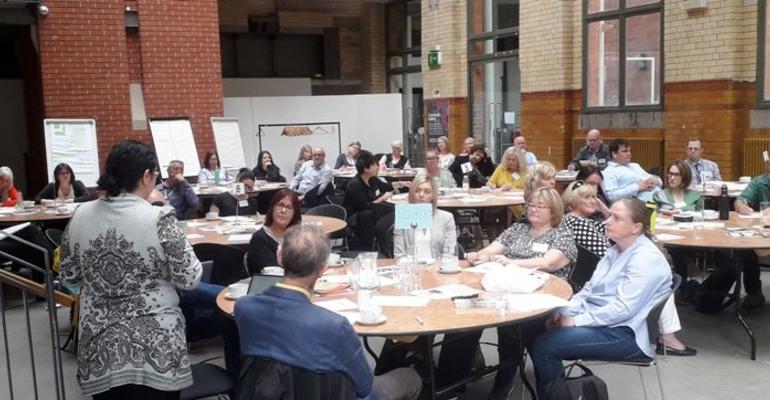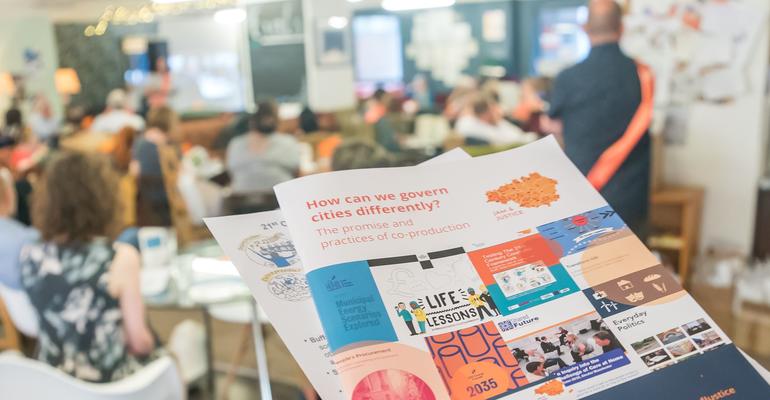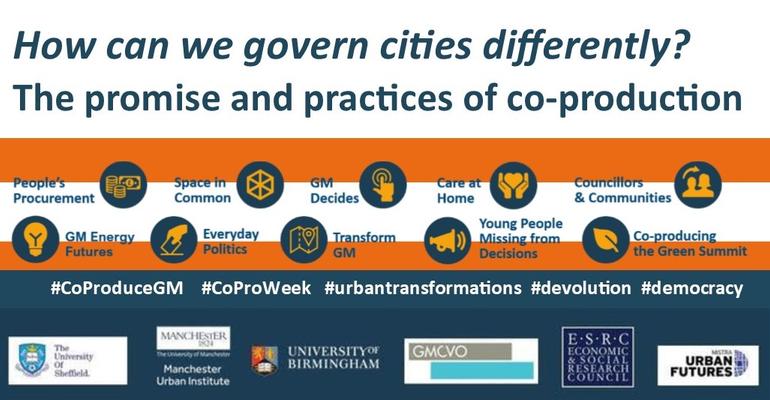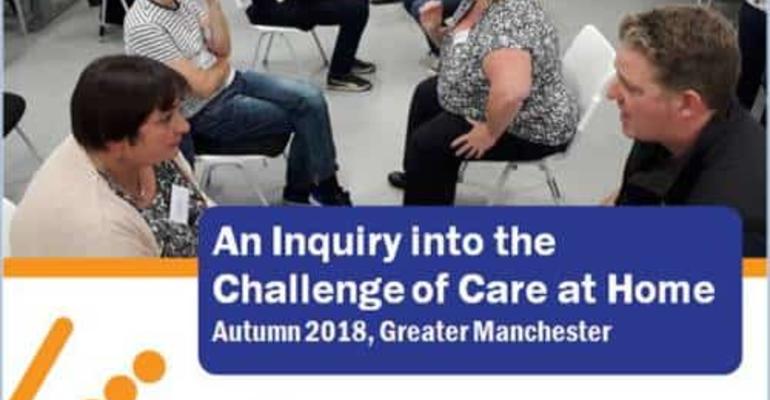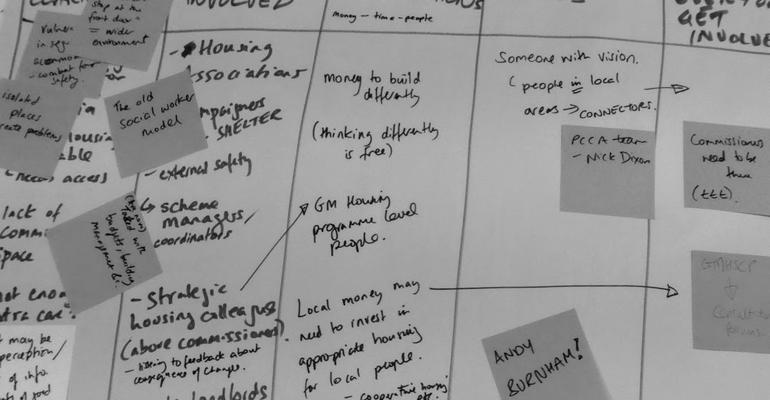About the Inquiry:
Evidence and policy suggests that including a wide network of expertise, particularly those with lived experience of needing care at home for themselves or family members, and giving voice and agency to people who receive care, alongside exploring the emotional aspects of health, can create produce better services. “Better services” in this context means for the person (their outcomes), the tax payer (more cost effective), and society (more inclusion, greater equity and the nurturing of community assets), by dealing with the whole person. This includes seeing individuals not as a ‘patient’ but a person rooted in their social context (place, family, the things that make them feel most alive and happy).Yet too often the outcomes for particularly older people are not good. There is a significant lack of properly connected services to enable often very vulnerable people stay safe, connected and well at home, or return home after a hospital stay. The challenge, given our aging population is huge, and the costs increasing. New approaches are urgently needed. Our suggested approach is a model of collaborative service redesign, using the principles of the citizen Inquiry, but inverting it. In the usual model, the citizens hear from ‘expert’ witnesses, and are able to ask them questions, over a number of sessions before a report with citizen led recommendations is produced.
Our ‘Inverted Citizen’s Inquiry’ worked in a similar but different way. Our Inquiry members were technical specialists, professionals and the usual ‘experts’, who heard from citizen witnesses. We wanted to learn if new forms of facilitated deliberation create more open decision-making processes or challenge the hard boundaries between people’s personal and professional roles, or ways of understanding a complex topic like care at home. The lessons can now inform other areas of policy development.
This Jam and Justice project was premised on the idea that the expertise in this policy area is ‘unbalanced’ and needs re-balancing. We see a need for both a professional, detached, specialist viewpoint, balanced by a rounded, holistic, and emotionally connected perspective. Both are needed; aspects are currently missing. Our ‘Inverted Inquiry’ members were drawn from across a range of relevant professions (OTs, nurses, GPs, social workers, carers, etc.) and at different levels of professional hierarchies. We aimed to recruit as diverse and wide a group as possible. Facilitation aimed to help people enter the conversation as citizens or not dominated by their professional roles. Partly the Inverted Inquiry aimed to see if we can re-mould conventional power hierarchies (where they inhibit creativity and new thinking) and get people into this space on an equal footing, open to new inputs.
More on this project
To find out more about the ‘usual’ Citizen Jury model that we adapted, see the review of citizen-led deliberation processes produced by Shared Future, who helped to facilitate this project. Also the testimonies of citizens and professionals who were involved in one of Shared Future’s inquiries into community orientated primary care in Blackpool.
If you have questions about this Jam and Justice project, email our ARC members: Jez Hall, Andrew Burridge and Liz Richardson.
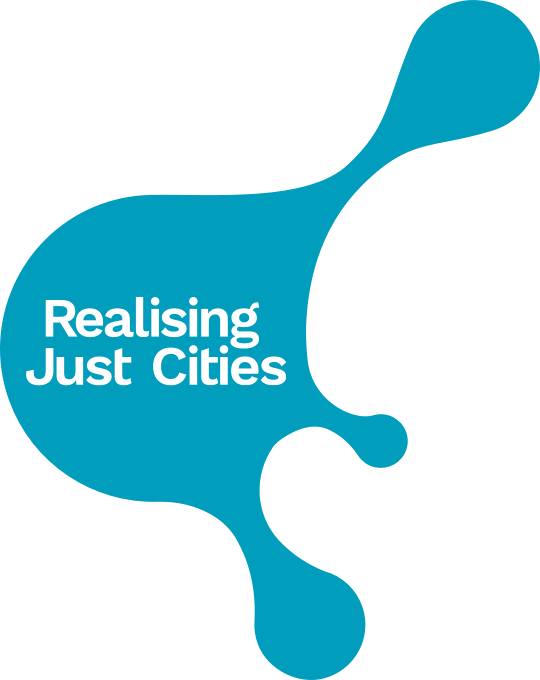
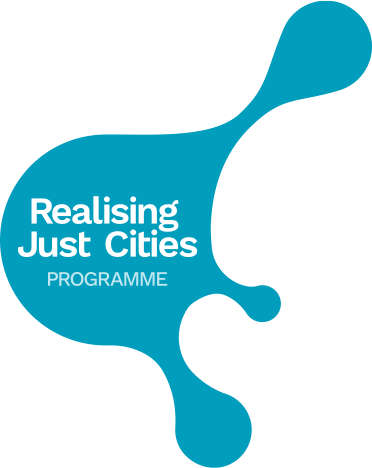



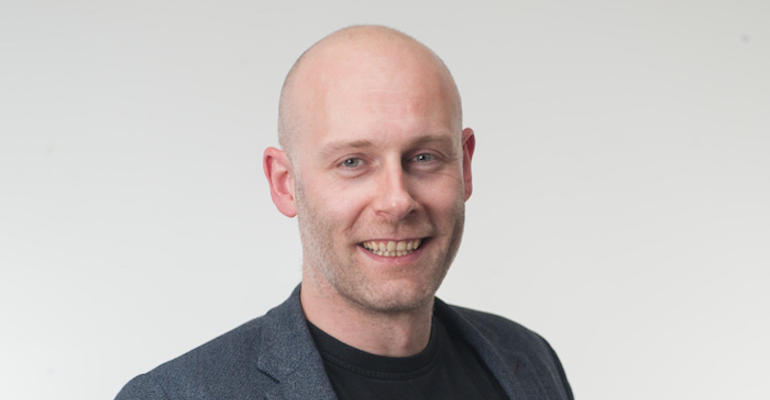
_0-itok-MW8SNnVz.jpg)
